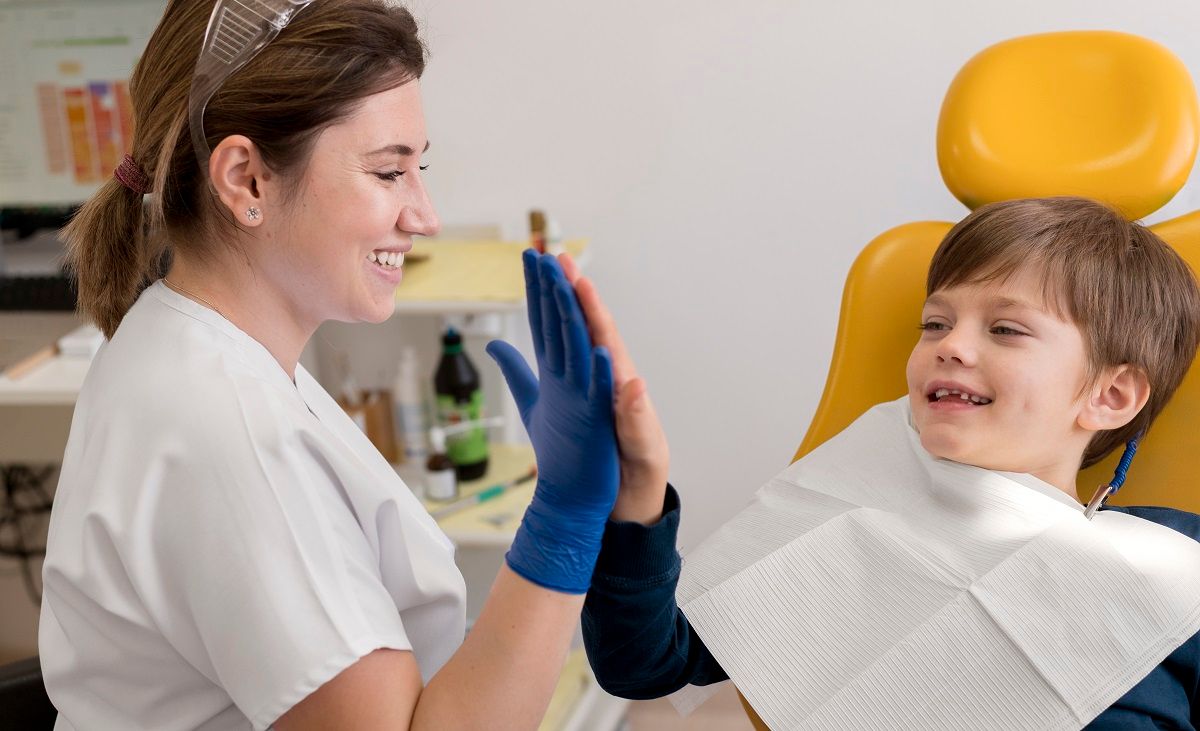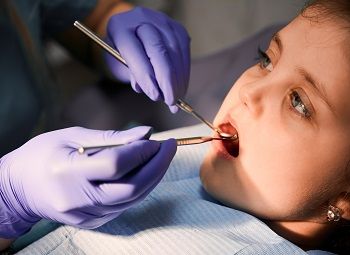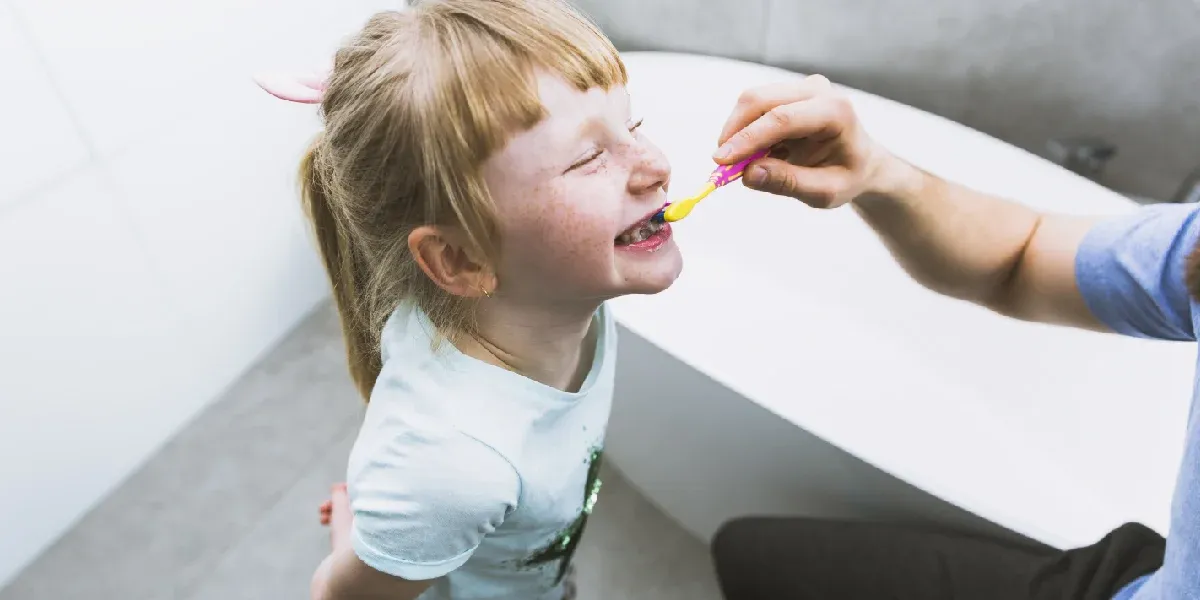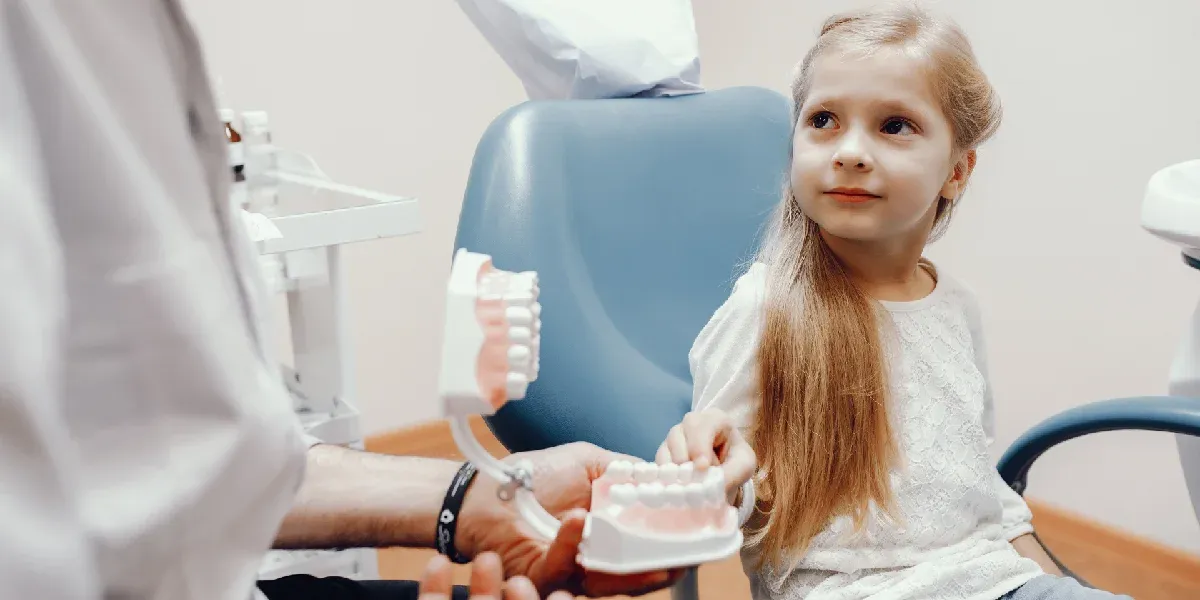
The Role of a Pediatric Dentist: Keeping your Child’s Teeth Healthy
When it comes to the health and well-being of our children, their dental care plays a crucial role. Parents understand the importance of maintaining healthy teeth and gums, but children’s dental needs require specialized attention. That’s where a pediatric dentist comes in.
With their expertise and knowledge, pediatric dentists play a significant role in ensuring the oral health of infants, children, and adolescents. In this blog post, we will explore the vital role of pediatric dentists and how they contribute to keeping your child’s teeth healthy.
The Role of a Pediatric Dentist: Promoting Optimal Oral Health for Children
Pediatric dentists provide comprehensive oral healthcare for infants, children, and adolescents. Their role extends beyond the usual dental care provided to adults, as they cater specifically to the unique dental needs and challenges young patients face.
With their expertise, knowledge, and child-friendly approach, pediatric dentists play a critical role in promoting optimal oral health for children. Let’s explore pediatric dentists’ multifaceted role, responsibilities, and impact on children’s dental well-being.
- Preventive Care and Education
Preventive care is at the forefront of a pediatric dentist’s role. He understands that early intervention and education are crucial to maintaining good oral health in children. Pediatric dentists emphasize the importance of proper oral hygiene practices, such as regular brushing, flossing, and a healthy diet.
They educate children and parents on these practices, ensuring they understand oral care’s significance early on. By instilling these habits early on, pediatric dentists help children develop a strong foundation for a lifetime of good oral hygiene.
In addition to education, pediatric dentists provide preventive treatments tailored to children’s needs. These treatments may include dental sealants, which act as protective barriers on the chewing surfaces of teeth, preventing the onset of decay.

Fluoride treatments are also commonly administered to vitalize the tooth enamel and lessen the risk of cavities. By implementing preventive measures, pediatric dentists significantly reduce the occurrence of dental problems, setting the stage for long-term oral health.
- Early Detection and Treatment of Dental Issues
Pediatric dentists are skilled at identifying and addressing dental issues in their early stages. Regular dental check-ups enable them to monitor the growth and development of teeth, identify any abnormalities, and provide timely intervention.
They conduct thorough examinations of the teeth, gums, and oral tissues, checking for signs of tooth decay, gum disease, malocclusion (improper bite), or other dental problems.
When dental issues are detected early, pediatric dentists can employ various treatment options to prevent further complications. They may recommend non-invasive approaches, such as dental fillings for cavities or space maintainers, to ensure proper tooth alignment in cases of premature tooth loss.
By addressing dental problems promptly, pediatric dentists minimize the need for more invasive and extensive procedures in the future.
“Preventive care, including regular dental check-ups, cleanings, fluoride treatments, and sealants, can significantly reduce dental problems in children. Data from a study indicates that school-based sealant programs can prevent up to 80% of cavities in children’s permanent molars”.
- Managing Dental Anxiety and Promoting a Positive Dental Experience
Dental anxiety is a common concern among children and can often hinder their willingness to seek necessary dental care. Pediatric dentists are well-versed in managing dental anxiety and creating a positive and comfortable dental experience for young patients.
They employ techniques to alleviate fear and ensure children feel at ease during their visits. Pediatric dentists use age-appropriate language to explain procedures, ensuring children understand what to expect.
Pediatric dentists build trust by establishing a positive and friendly rapport with their young patients, helping children overcome their dental fears and anxieties.
- Specialized Care for Children with Special Needs
Pediatric dentists provide specialized dental care for children with special healthcare needs. They understand these children’s unique challenges, including physical, developmental, or cognitive limitations. Pediatric dentists work closely with other healthcare professionals to deliver comprehensive, individualized care that meets each child’s needs.
Adapting their techniques and approaches, pediatric dentists ensure that children with special needs receive dental care. They may provide modified treatment environments and sedation options or utilize behavioral management techniques to facilitate successful dental visits.
By prioritizing the dental health of children with special needs, pediatric dentists contribute to their overall well-being and quality of life.
- Dental Trauma Management
Children are prone to dental trauma through accidents, sports injuries, or other incidents. Pediatric dentists are skilled in managing dental trauma and providing prompt and appropriate care. They assess and treat dental injuries such as chipped, fractured, or knocked-out teeth, ensuring the best possible outcome for the affected child.
By offering immediate intervention and guidance for follow-up care, pediatric dentists help restore dental health and minimize long-term complications.
- Oral Health Education for Parents

Pediatric dentists recognize the importance of parental involvement in maintaining their child’s oral health. They provide guidance and education to parents on various aspects of oral care, including nutrition, oral hygiene practices, and strategies for managing oral habits like thumb sucking or pacifier use.
By empowering parents with knowledge and resources, pediatric dentists enable them to become active partners in their child’s dental well-being.
Strategies Used by Pediatric Dentists for Dental Trauma Management
- Assessment and Diagnosis: When a child experiences dental trauma, the first step is a thorough assessment and diagnosis by the pediatric dentist. The dentist carefully examines the affected area, including the teeth, gums, lips, tongue, and surrounding oral tissues. By conducting a comprehensive evaluation, pediatric dentists can discern the extent of the injury and its potential impact on the child’s oral health.
- Emergency Care: In cases of dental trauma, pediatric dentists provide emergency dental care to address acute dental injuries. These may involve stopping bleeding, managing pain or discomfort, and ensuring the stability and integrity of the affected teeth and surrounding structures.
- Treatment Planning: After assessing the dental trauma, pediatric dentists develop a tailored treatment plan based on the child’s needs. The treatment plan may vary depending on the type and severity of the injury. Pediatric dentists consider factors such as the child’s age, stage of dental development, and the potential long-term consequences of the trauma when formulating the treatment approach.
- Restorative Dentistry: Pediatric dentists employ various restoration techniques, including dental fillings, bonding, or crowns, to repair fractured or chipped teeth. The goal is to look after the natural tooth structure, restore functionality, and maintain an aesthetically pleasing appearance.
- Management of Knocked-Out Teeth: In cases of knocked-out teeth, pediatric dentists provide immediate guidance and intervention. Time is of the essence in such situations, as the chances of successful re-implantation are highest within the first hour after the injury. Pediatric dentists may advise parents or caregivers on handling the avulsed tooth correctly and take appropriate steps to increase the likelihood of a successful re-implantation.
- Follow-Up Care: After the initial emergency treatment, pediatric dentists provide comprehensive follow-up care to monitor the healing process and ensure the long-term success of the treatment. They schedule regular appointments to assess the stability of the injured teeth, evaluate any potential complications or secondary issues, and make any necessary adjustments or modifications to the treatment plan.
- Prevention and Education: Pediatric dentists recognize the importance of preventing future dental trauma. They educate children and parents about preventive measures, such as wearing mouthguards during sports activities or taking precautions to minimize the risk of accidents. By raising awareness and providing guidance, pediatric dentists aim to reduce the occurrence of dental trauma in children.
Concluding Thoughts
Parents must recognize the significance of pediatric dentistry in safeguarding their child’s oral health. Parents can ensure their child receives comprehensive, specialized dental care tailored to their unique needs by partnering with a pediatric dentist. The guidance and education provided by pediatric dentists empower parents to actively participate in their child’s oral health journey and instill good oral hygiene practices from an early age.
In essence, the role of a pediatric dentist extends far beyond traditional dental care. The dentist’s expertise, compassion, and dedication contribute to the overall well-being of children by promoting healthy smiles. By prioritizing regular visits to a pediatric dentist, parents can give their children the best chance of maintaining healthy teeth and gums, setting them on a path to a bright and confident smile for years to come.
Contact Stockton dentist for kids, Sajjad Rizvi DDS, at Happy Kids Dental today to know more about the Role of a Pediatric Dentist: Keeping your Child’s Teeth Healthy.
Resource:
The Importance of Pediatric Dentistry: Why It Matters?
*This media/content or any other on this website does not prescribe, recommend, or prevent any treatment or procedure. Therefore, we highly recommend that you get the advice of a qualified dentist or other medical practitioners regarding your specific dental condition.*
Subscribe To Our Newsletter
Get Updates And Learn From The Best


